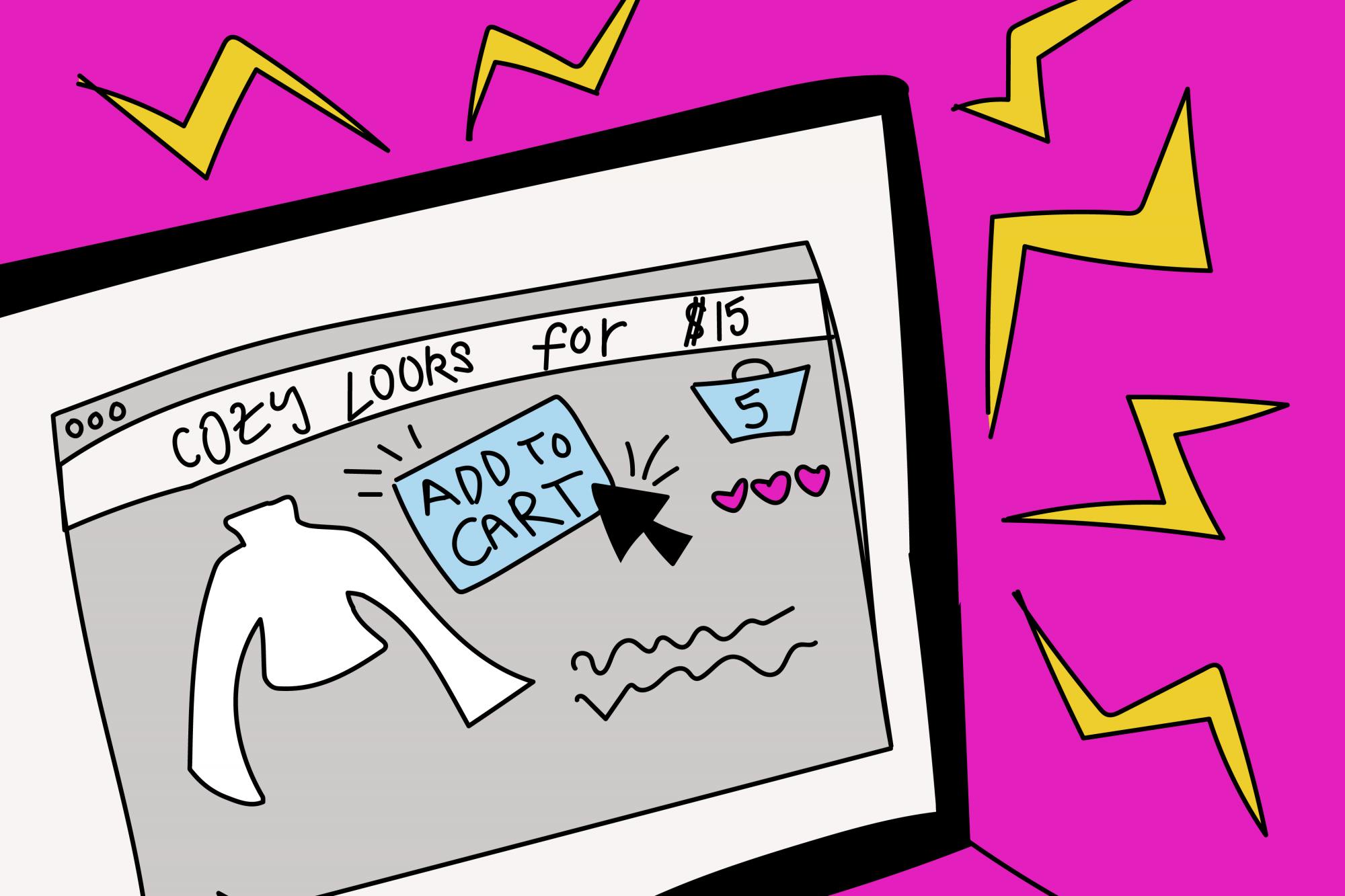There’s something about getting a package in the mail reminiscent of an early scene in “The Lion, the Witch and the Wardrobe” where Edmund has just tumbled through the wardrobe only to come face-to-face with the White Witch. Cold and beautiful, she promises that she can get him anything he wants. “Turkish delight?” he asks. Thousands of kids remember watching the intricately carved box appear from nowhere, delivering a sense of comfort and well-being even in the midst of the unknown.
A recent study by retail-focused technology company Bazaarvoice reported that in the latter half of 2020, 62% of Americans said that they’re shopping online more frequently than they did pre-pandemic. For many, 2020 might well have been as unfamiliar as Narnia, and ordering necessities and luxuries alike can provide a welcome distraction, a sense of hope, a shout into the void or an iota of normalcy. Opening your front door to scoop up your latest impulse buy might not have the same effect as discovering another realm behind a rack of coats, but Jeff Bezos and Tilda Swinton, the actress who plays the White Witch, do share a certain resemblance.
Dartmouth students, like everyone else, have spent some extra time inside and online these past 10 months, which has its consequences for social lives, mental wellbeing and the add-to-cart button. Julia Shen ’23, who said friends sometimes refer to her as a “professional online shopper,” observed that her motives behind online shopping have changed as a result of the pandemic.
“I would turn to online shopping if I was bored and had nothing else to do. And I would try to use fashion as a self-esteem booster, in hopes that I would get clothes that would make me feel pretty,” Shen said.
Erin Kim ’23 has a similar self-diagnosis when it comes to how her shopping habits have been affected by COVID-19.
“I only get a package every now and then, but it’s still exciting. It gives you something to look forward to, like, ‘A year from now, I’ll be able to wear that.’ It helps people look forward to something besides right now,” Kim said.
COVID-19 has caused other students, like Taylor Hickey ’23, to strategize about when and what to buy in a whole new way.
“Trends change so fast that if I order something now, by the time we’re out of quarantine and I actually get to wear it in public and enjoy it, I might not even like it anymore,” Hickey said.
But, like most, she’s still prone to the occasional impulse buy. Her best recent purchase?
“I bought a passport cover with my initials engraved on it. It’s not like I’m going anywhere, but it’s really pretty.”
Some of our online purchases reveal an undercurrent of hope; a few months or a year from now, maybe we’ll be back in a world where we can panic again over where our passport is while we rush to catch a flight. Stuck in this present, we inevitably dream about the future.
Kim, who is considering a career in the business side of sustainable fashion, prefers to buy second-hand as much as possible. Depop, an app where users can shop and list clothing, has become her new go-to.
“I go on it the same way people go on Instagram and just scroll through.”
Kathryn Kurt ’23 isn’t much of an online-shopper — she said she prefers to shop in stores. Still, she sees how prevalent shopping online has become, between Amazon, increased time indoors and even Instagram ads. She predicts that as online shopping becomes more interactive, brick-and-mortar stores will continue to go out of business. Still, she doubts people will ever lose their affinity for in-person shopping.
One issue raised by the pandemic has been supporting local businesses, which isn’t always possible online. Kennedy Hamblen ’23 admits to purchasing from big companies like Amazon during the pandemic because she felt safer buying books online than in person.
Hamblen isn’t alone. A Time article from July 2020 entitled “Most Companies Won’t Survive the Pandemic. Amazon Will Emerge Stronger than Ever” cites a study indicating that consumer spending on Amazon was up 60% between May and July from the same time frame in 2019, and notes that the company already controls 38% of all e-commerce. Even people who would rather support local businesses find themselves turning to Amazon out of convenience and safety concerns.
“I try to buy books used or buy them from local places, but it always feels like this kind of trade-off. It’s a good thing, especially right now, to support local businesses. But is it good to go out into public if it’s not necessary?” Hamblen said.
Kurt thinks that, despite all the Amazon packages arriving at doorsteps, there are a lot of things that consumers now take into consideration that they might not have before.
“I like to go through and ‘like’ anything that I remotely think is cool,” Kim said. “I’ll leave it sitting and wait two or three days and come back to it to see if I still like it”.
Over a century and a half years ago, Abraham Lincoln would write letters and leave them in a drawer overnight to go over in the morning. Fresh eyes can be just as helpful now when you’re trying to figure out if you really want that purchase. Since adopting this strategy, Kim’s wardrobe has changed for the better.
“I have bought a lot less, but I love everything I buy,” Kim said.
Correction appended (Sept. 23, 5:18 p.m.): This article has been updated to reflect preferred pronouns.





